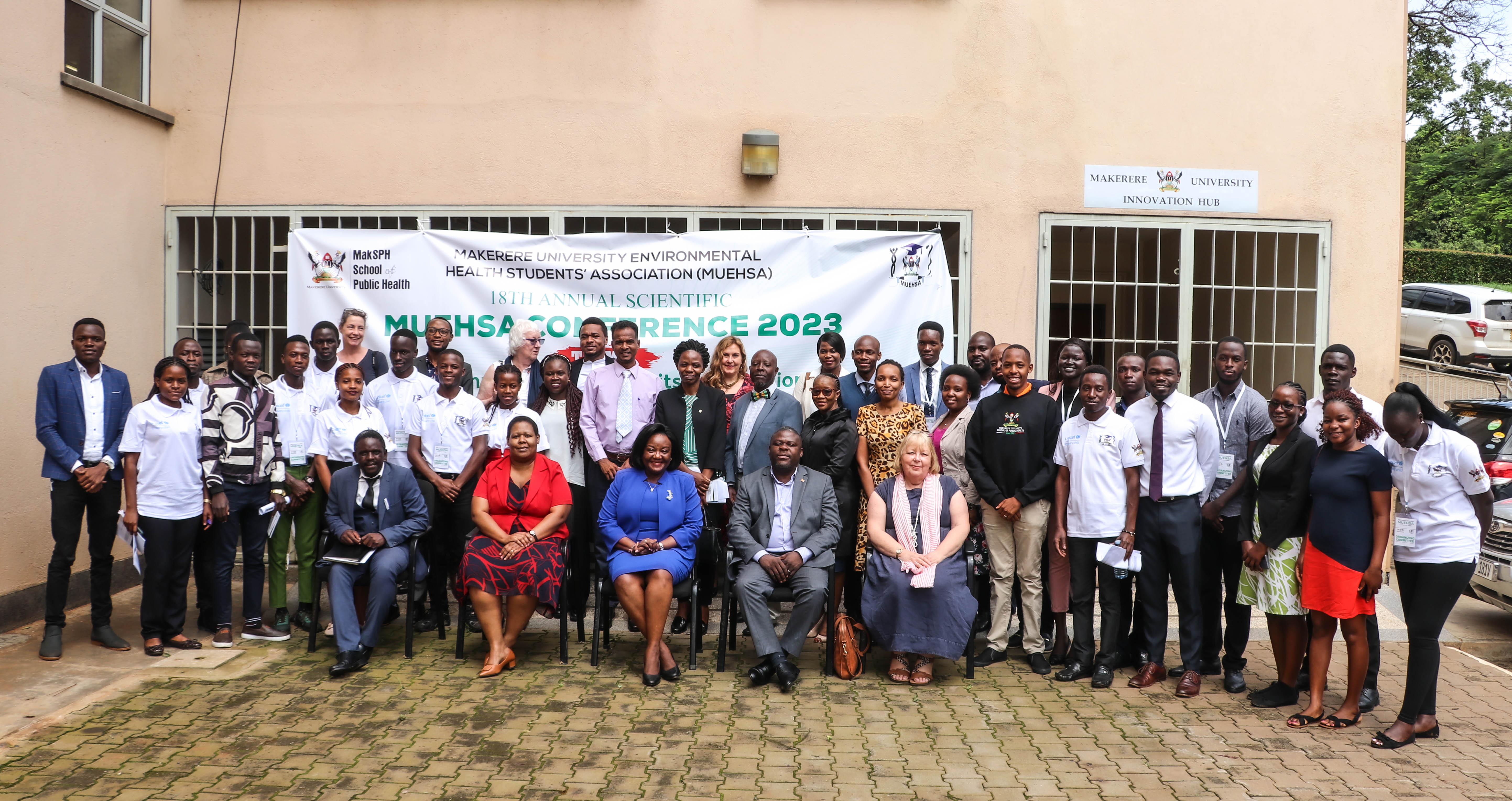
Ugandan experts have pushed for proper management of plastic waste to prevent disease outbreaks in order to avert the adverse effects of plastic waste on the environment. Dr. Esther Buregyeya, Associate Professor and Head, Department of Disease Control and Environmental Health at MakSPH, highlighted the dangers of plastic waste during the 18th Annual MUEHSA Scientific Conference.
The two-day conference held between April 27th - 28th, 2023 at the Yusuf Lule Central Teaching Facility at MakerereUniversity Main Campus was organized by Makerere University Environmental Health Students’ Association (MUEHSA). The conference had plastics, food contamination, and chemical use as key highlights of the discussions. MUEHSA, a student-led Association founded in 2003, supports the interests of students and practitioners of Environmental Health in Uganda.
In her remarks, Dr. Buregyeya observed that while plastics are considered a miracle product of the 20th century, it has become a curse of the 21st century. “There have been massive importation and production and use of plastics even in our setting in the packaging industry especially,” she said.
She further noted that “Plastics are hardly degradable and end up causing permanent pollution. There is evidence that plastics have a role in the generation of infectious disease risk, for example plastic debris in the cold water provide many grounds for water-borne diseases potentially increasing local vector population that have implications on the disease burden.”

According to Dr. Buregyeya, stagnant water generated by plastics also promotes waterborne diseases like guinea worm, isthmitis, lymphatic filariasis, and abscesses. “It's high time that we did something in our setting in regard to proper management of plastic waste to be able to prevent disease outbreaks.”
She also expressed a deep concern about the utter neglect of environmental health in Uganda evidenced by shortage and or lack of WASH facilities in most health facilities. “WASH is a key foundation for resilient health systems, particularly in this era of increasing burden of microbial resistance,” she advanced. Urging the MUEHSA movement and all the environmental health practitioners to seriously advocate for proper plastic management in this country. “This is our space, no one is going to do it, so it's high time we did that.”
During the conference, Dr. Rhoda Wanyenze, Professor and Dean, MakSPH called for greater attention to be given to the environment in the field of public health emphasizing that the environment is a critical component of public health that has not been given enough attention. She stressed that it is necessary to incorporate environmental health into the One Health approach, which focuses on the interconnection between human, animal, and environmental health.

According to Dr. Wanyenze, issues such as communicable and non-communicable diseases are closely linked to the environment, and that neglecting environmental health can have serious consequences. “Esther has talked about plastics. This is such a big issue, I also worry of what we are eating in agriculture. We are using a lot of pesticides. We are spraying everywhere. Although we are spraying to eradicate malaria but now we spray everything, we spray the weed and actually I don’t know the surveillance methods that exist, I do not know what is being used whether it is safe and the amounts we are consuming and what they are going to do to our bodies.”
Professor Wanyenze noted that surveillance systems have been predominantly focused on infectious diseases, citing that it is now time to reorient these systems to capture what is happening in the environment. She emphasized the need for research to inform decisions at policy as well as implementation levels, and suggested that a meeting be held with the Ministry of Health and colleagues in other schools to discuss the issue and come up with priorities for intervention and research.
"We need to be equipped even to detect what is out there," she said. "How will we even do the surveillance if we are not equipped to even pick up what is out there in the environment?"
UPDF Epidemiologist and Incident Commander for COVID-19 and Ebola, Lt. Col. Dr. Kyobe Henry Bbosa spoke as the Chief Guest about the changing dynamics in public health dictated by global and local factors.
"Recently we are seeing more and more of these outbreaks coming through and even disease that are actually endemic become problematic because of the environment where they are because they interface with humans and getting complicated, we’ve seen malaria, we’ve seen Covid, we’ve seen Ebola, we’ve seen Marburg," said Lt. Col. Dr. Kyobe.
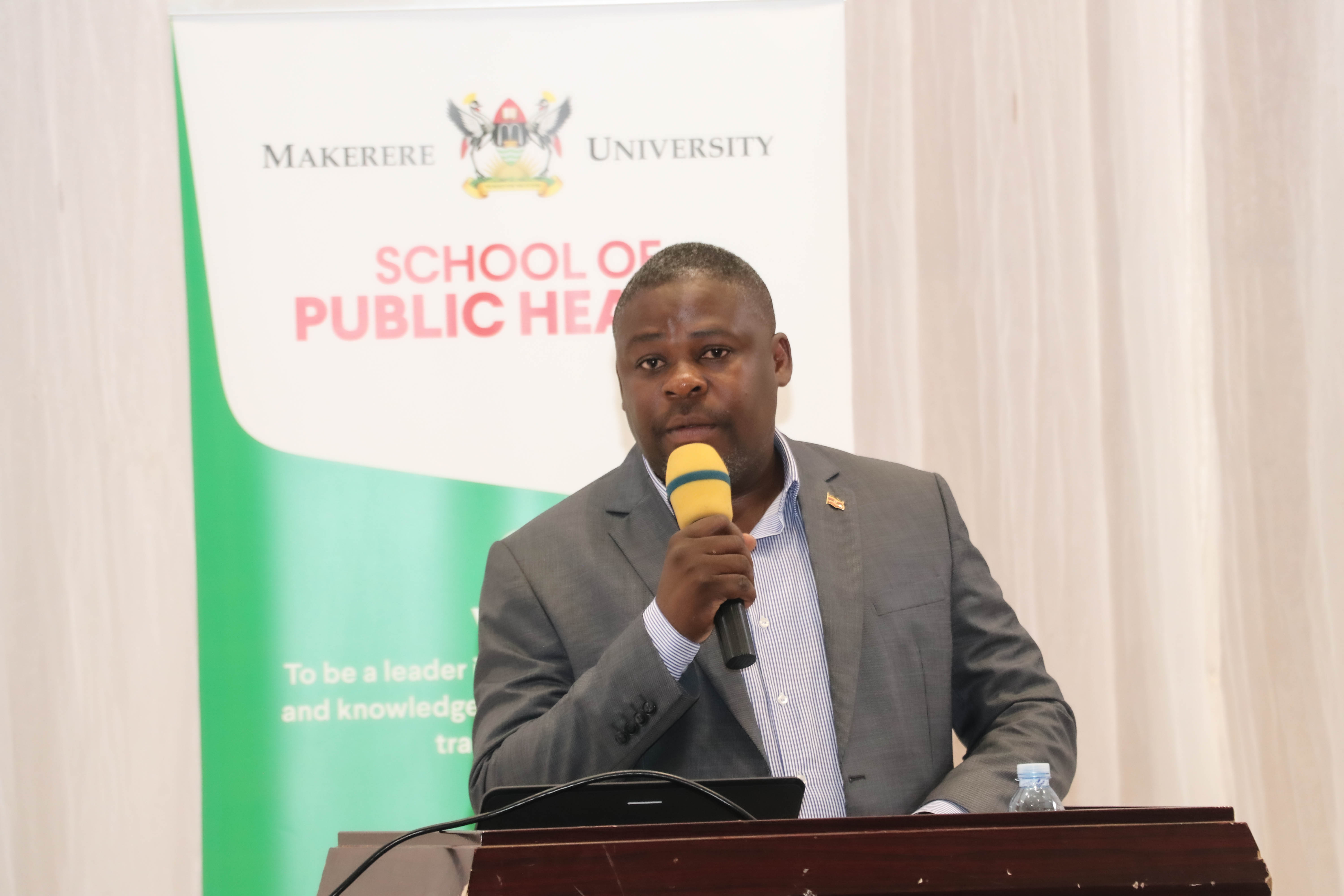
Dr. Bbosa pointed out that advances in science and technology, such as messenger technologies and genomics, have helped in pinpointing the location of disease transmission.
“The world's inter-connectedness, both physically and virtually, has created a quick flow of information and misinformation that can mislead the population, but also provides accountability through tougher questioning. When we grew up to the late 1990s and early 2000s, we had little information but now a young person with a phone is able to access this information. Also, because of easy mobility diseases are able to move and spread faster. Ebola moved very fast from Mubende to Kampala in a very short time and I recall,” said Dr. Bbosa.
Adding that; “We have globalization and international trade meaning that we live in a global village meaning that what happens here happens elsewhere. It took a few days, weeks, months to have SARS 2 spread across the world as compared to before where had diseases localized in one place so with this, we have fast movement of these across the world and we are seeing them more violent and that’s why we are having re-emergences for example; today, were are seeing malaria affecting older children, different from what we knew before causing significant number of patients with damage leading to some system failure and this is something that is increasing and what we shall contend with and you as future leaders of public health, this is something you are going to contend with."

He highlighted the importance of equity in medical countermeasures like therapeutics and vaccines further emphasizing the role of young public health leaders and urged them to take on the challenge of global public health issues like emerging and re-emerging infectious diseases.
Ruth Mubeezi Neebye, Assistant Lecturer in the Department of Disease Control and Environmental Health and Patron MUEHSA, noted the importance of young people in nation-building and their involvement in managing diseases. "Young people are the backbone of any nation, so having them directed to a cause as important as managing diseases through their discipline I think is a commendable aspect for which we should be grateful," Neebye said.

She thanked the various partners and organizations that made the conference a success. "We have not been doing this alone. We want to thank the Office of the Dean especially Prof. Dr. Rhoda Wanyenze, our partners UNICEF, the various individuals and all others for having supported us to see it that this 18th conference takes place," she said.
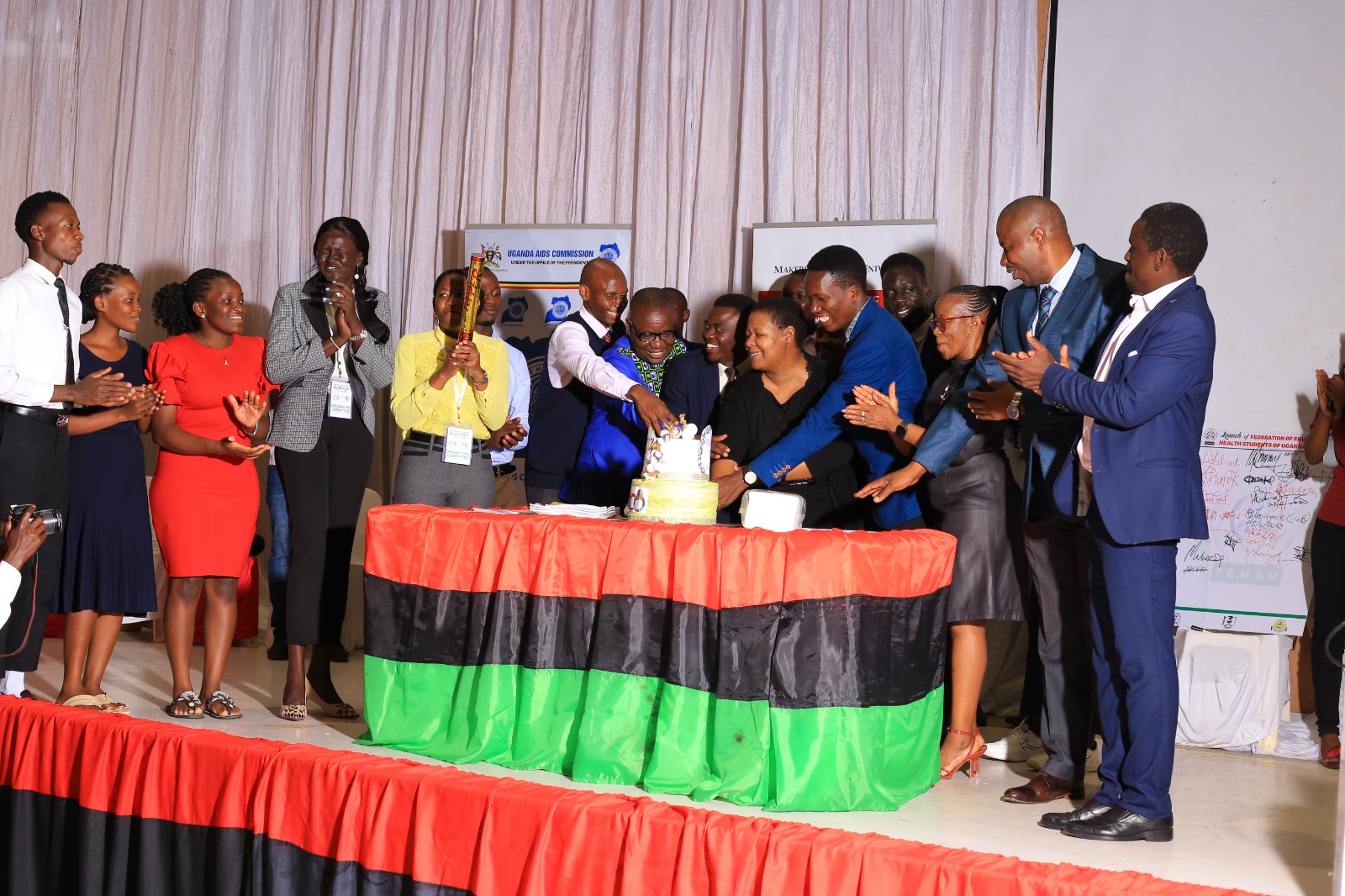
The conference drew participants from various countries, including Botswana, the United Kingdom, with attendees from Nottingham Trent University, University of Botswana, Muhimbili University of Health and Allied Sciences, Teesside University, Middlesbrough, England, Ministry of Health -Uganda, professional bodies, faculty and students of Makerere University. Ms. Neebye encouraged all participants, especially students, to make use of the opportunity for networking, as the people they meet during the conference could be their future bosses or colleagues.
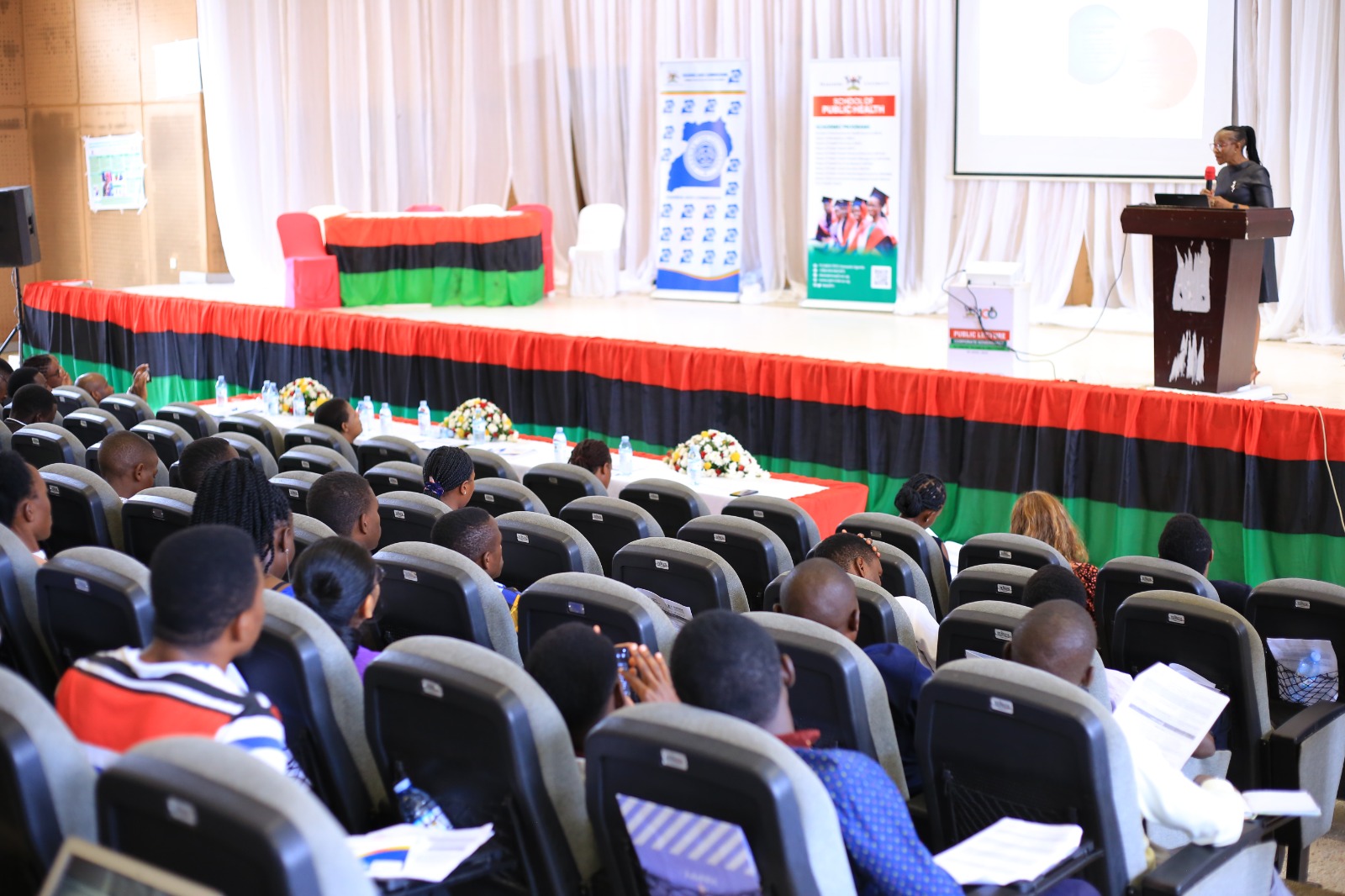
"I encourage all participants especially students to make use of this opportunity for networking. Actually, the people you meet during this two-day conference could be your next boss, could be your colleague, and to share ideas on how we can foster and improve environmental health in this country and ultimately achieve the goal of this conference," she said.
Mr. Kabangi Moses Mwigo, Assistant Commissioner Department of Environmental Health, Ministry of Health emphasized the role of environmental health practitioners in preventing disease outbreaks working with communities and other community health structures to monitor conditions in their areas of jurisdiction.
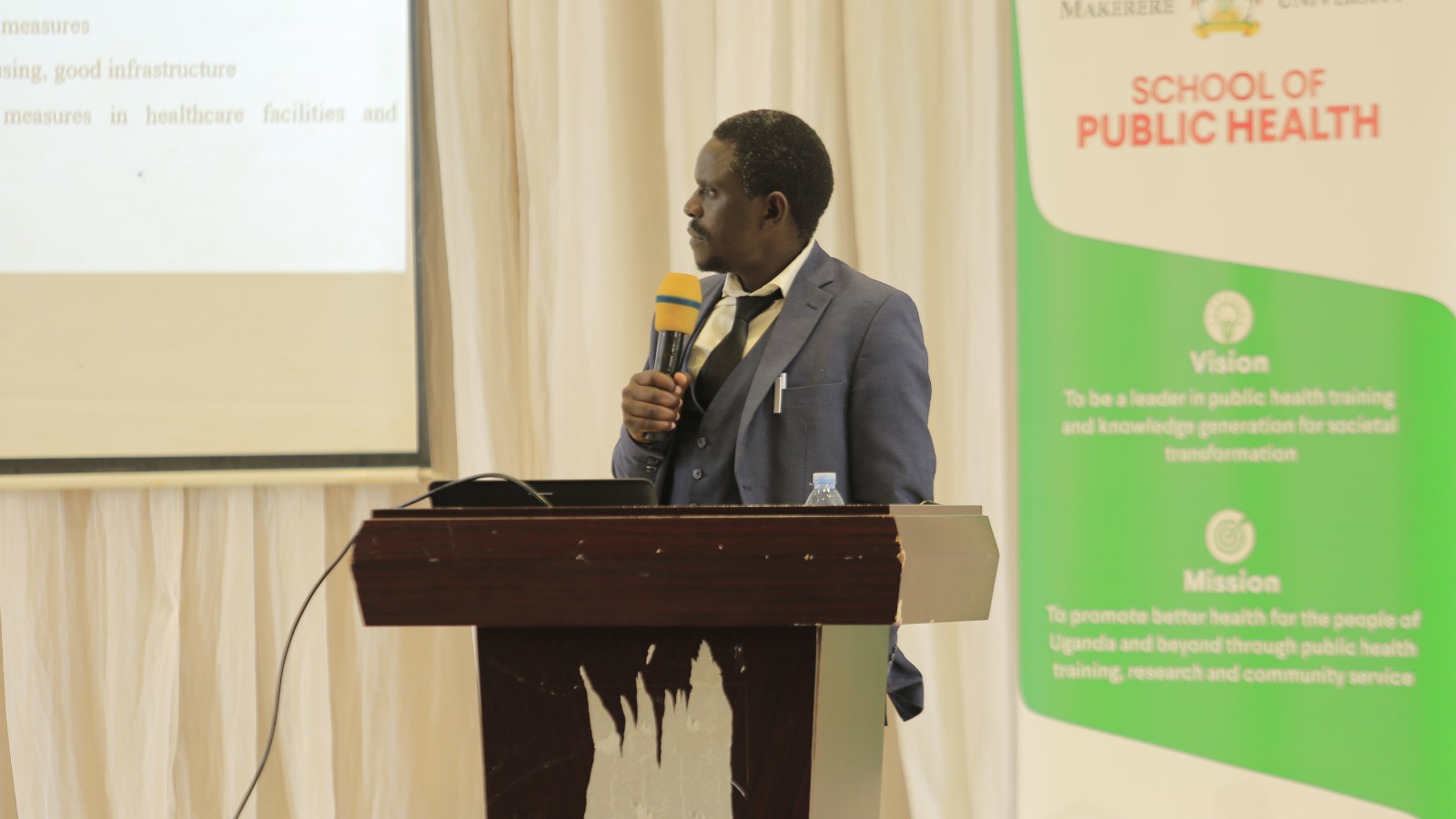
Mr. Kabangi noted that there were many contributing factors to disease outbreaks, including uncontrolled urbanization, wetland encroachment, and waste generation. He also mentioned that the misuse of antibiotics in both animal and human healthcare posed a significant challenge to disease prevention further stressing that prevention of disease outbreaks was a shared responsibility and that everyone had a role to play in protecting the public.
“Colleagues, one of your core roles as environmental health practitioners is to ensure that you undertake diseases surveillance in your communities but also be able to detect transmission swiftly. You will be working with Village Health Teams (CHWs) and they will always be reporting to you the abnormal occurrences in communities so you be able to act fast. It’s very important that we contain transmission and once we do that, we protect the public. We are expected to sound early warning, and how do we do this, reporting. Implement early prevention measures. If you don’t act very fast, then the disease is likely to spread and cause more trouble,” said Mr. Kabangi.
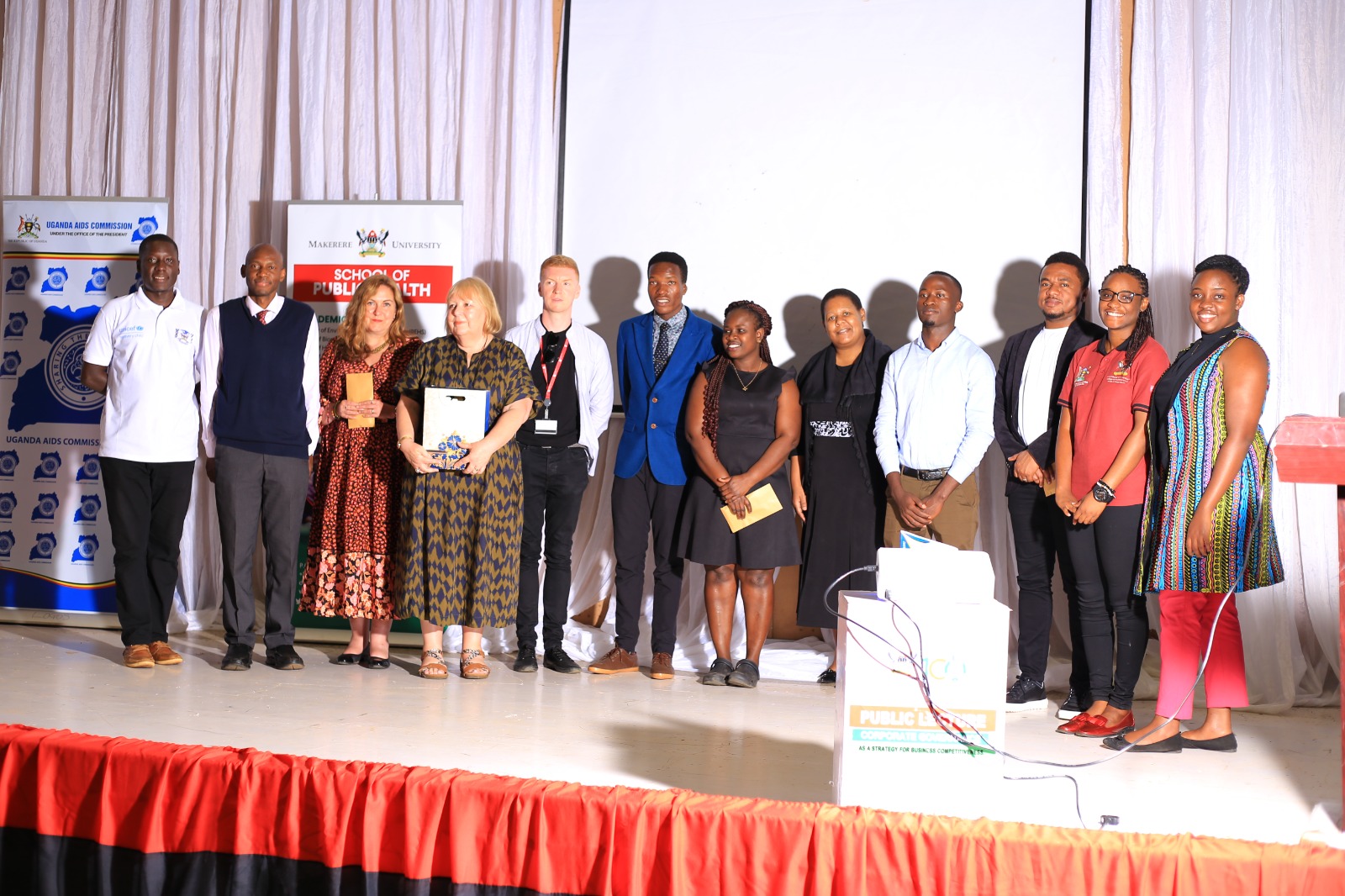
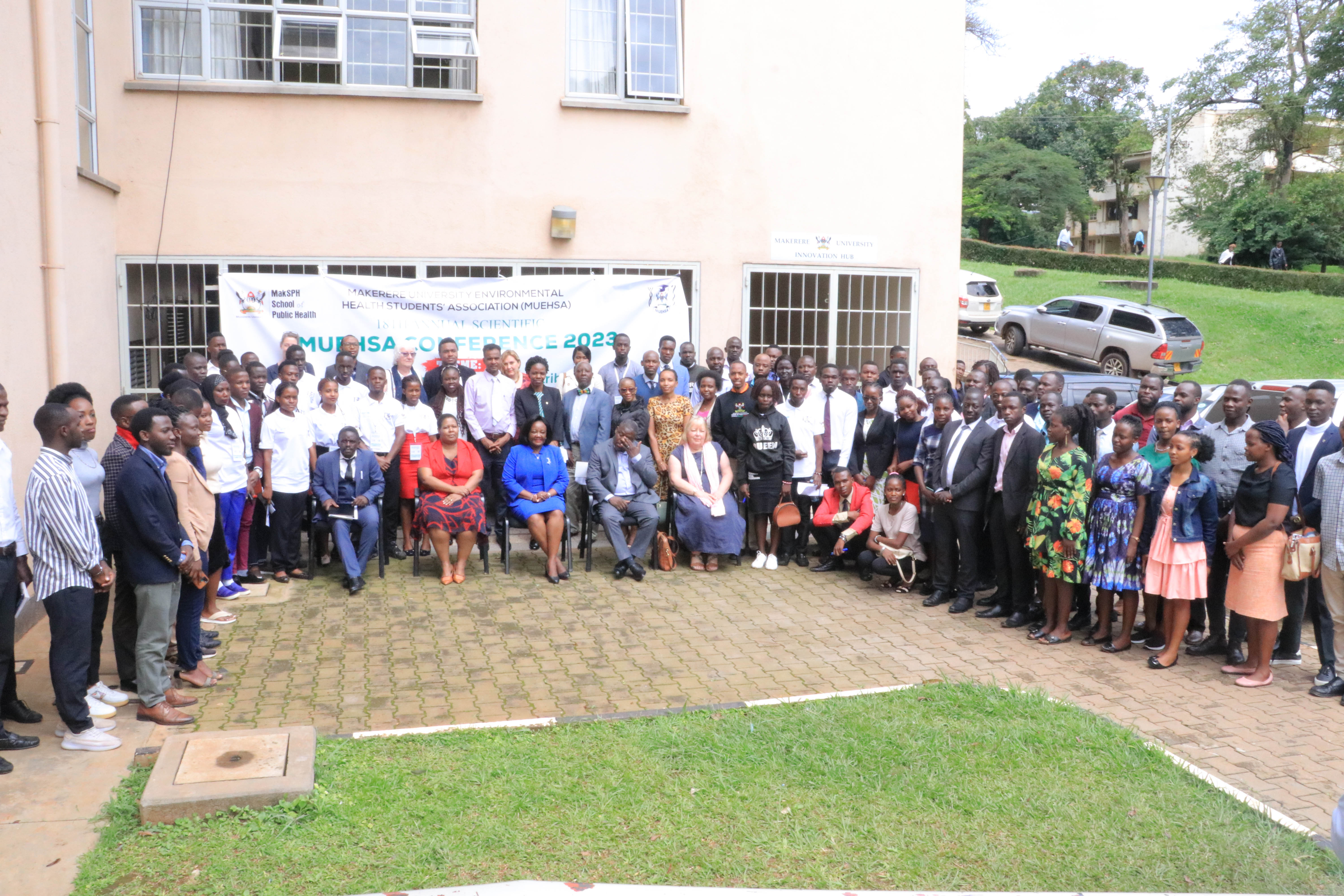
By Davidson Ndyabahika

